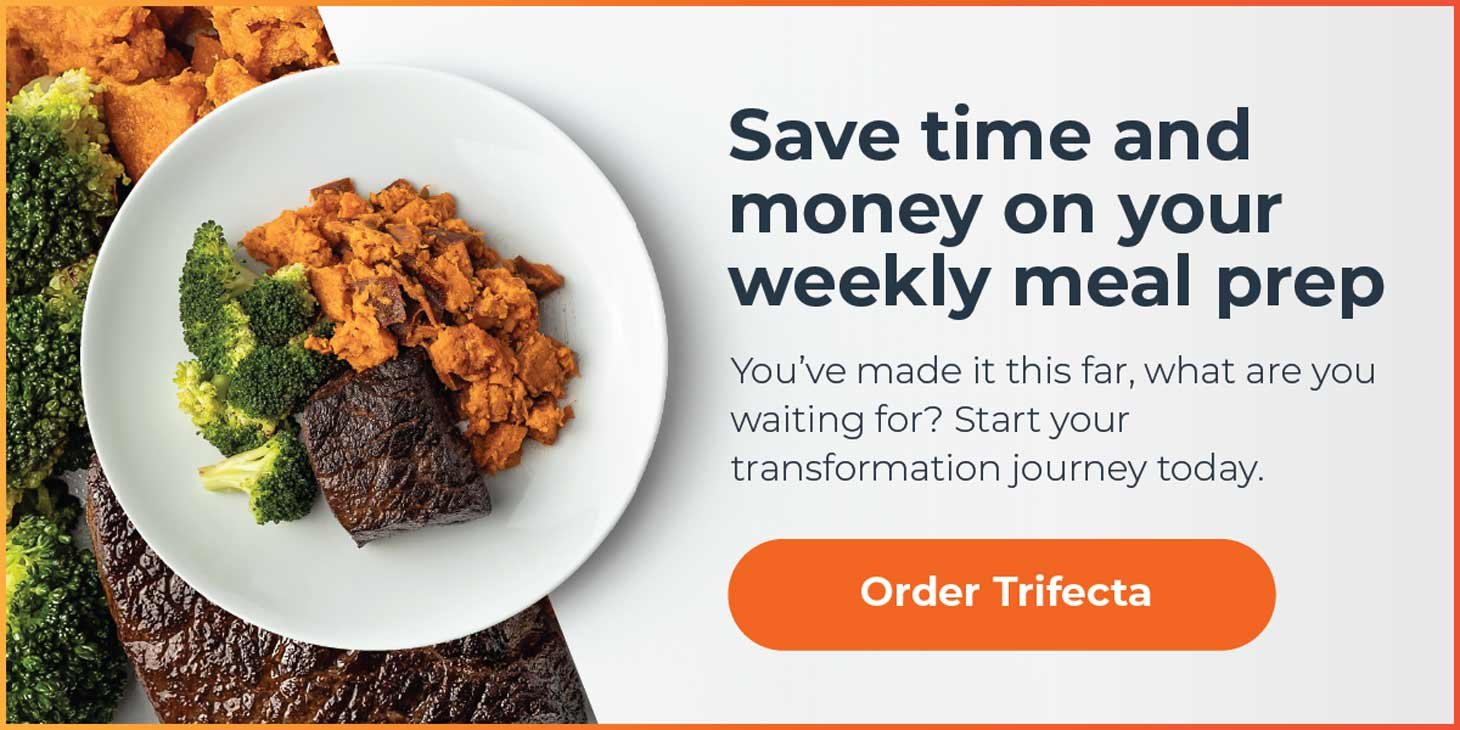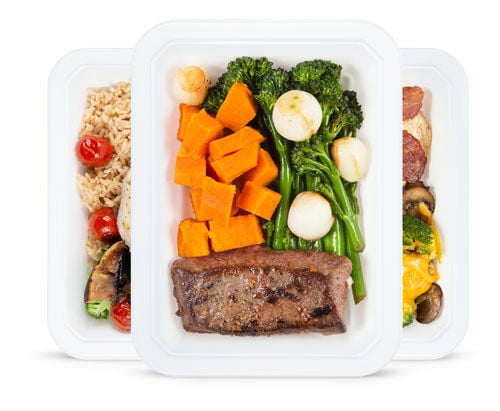There is likely no greater debate in the world of nutrition than that of omnivore vs. plant based nutrition approaches to health. And while there are many strong opinions out there, the science is much less clear cut than we are led to believe.
Meat based diets have the benefit of more quality proteins to support lean mass, whereas plant based diets can help cut your intake of saturated fat and increase your fiber intake. The question then becomes, which benefits are truly more beneficial?
Here’s what the science tells us.
The Twin Study: An Honest Review
A recent Stanford study, featured in the Netflix documentary, 'You Are What You Eat: A Twin Experiment', is one of the first of its kind. Researchers were able to eliminate a lot of variables in their diet comparison by using genetically identical twins - pairing one twin with a healthy omnivore diet and the other with a healthy vegan diet.
The study concluded that both dietary approaches were effective in helping participants lose weight. However, the vegan diet seemed to have a more favorable outcome on heart health and aging. The vegan diet seemed particularly effective in lowering LDL cholesterol compared to the omnivore diet.
However, there were also some downsides to the vegan approach.The vegan participants were not able to gain lean muscle mass as easily as the omnivore eaters. They also had lower intakes of protein, vitamin B12, and reported lower satisfaction on their diet.
It is important to note that this study is also fairly small, sampling only 42 participants and that it only lasted 8-weeks. Additionally, while these findings are interesting, they don’t really tell us anything new.
What Does a Healthy Omnivore Diet Consist of?
There is quite a bit of difference between a standard American diet high in calories and low in fruits and vegetables, compared to a balanced omnivore diet that includes plenty of healthy fats and plant based foods. In fact, omnivorous can also be a “plant based” approach to healthy eating.
The Mediterranean diet is a great example of a healthy approach to omnivorous eating (1). This diet emphasizes lots of fruits, vegetables, whole grains, nuts, legumes, and fish, while keeping meat and dairy intake moderate to low.
What Does a Healthy Vegan Diet Consist of?
Just as not all omnivore diets are created equal, neither are all vegan diets. It is possible to go vegan and gain weight or negatively impact your health if you aren’t careful in your food choices. After all, french fries and oreo cookies are technically vegan.
Like a healthy omnivore diet, the best vegan diets emphasize whole food nutrition from plants and limit heavily processed options. A healthy vegan approach should also prioritize plant based proteins at every meal to ensure you get enough protein to support your lean mass. This would include lots of vegetables, fruit, beans, whole grains, nuts, and seeds.
Omnivore vs. Vegan for Nutrition
When you put these two dietary approaches head to head the nutrition is a bit of a toss up.
Omnivore diets can supply more quality complete proteins that are easily absorbed. They are also higher in vitamin B12 (found only in animal foods), along with more zinc, vitamin D, and EPA and DHA omega-3 fatty acids (2,3).
However, omnivore diets can increase your intake of saturated fats and cholesterol (2).
On the contrary, vegan diets high in nutrient dense plants will likely provide more fiber and healthy fats. Along with itamins C, A, and E, folate, and magnesium that come from plant based foods.
However, vegan diets may increase the risk for nutrient deficiencies like vitamin B12, vitamin D, and zinc (2). And vegan eaters will likely need to supplement their omega-3 intake (4).
Omnivore vs. Vegan for Health
The research comparing a healthy omnivore diet to a healthy vegan diet is fairly limited. Much of what we have to go off of relies on plant based studies that include vegetarian diet and oftentimes they are compared to a standard unhealthy american diet high in meat.
To make this a fair fight, we must consider the healthiest approaches to each style of eating - utilizing a nutritionally balanced, high protein vegan diet compared to an omnivore diet high in plant nutrition (like the Mediterranean diet).
Mediterranean diets have long been associated with positive health benefits including decreased blood pressure, decreased LDL cholesterol, and improved blood glucose control (5,6,7).
Vegan diets have been associated with decreased joint pain, lower blood pressure, decreased risk of type 2 diabetes, lower LDL levels, and decreased risk of certain cancers (8,9,10,11,12).
Of course, we all know it is not easy to stick to a perfectly balanced nutrition plan long-term, so we must also explore the wider range of health effects between these two eating styles to keep things realistic.
High intakes of meat and dairy are often linked to increased LDL cholesterol. Some research has also linked meat and dairy consumption with gastric cancer, prostate cancer, and colon cancer (13,14,15).
Interestingly, there is also research that points to possible health risks to going vegan. Due to possible nutritional deficiencies, vegan diets have been linked to impaired bone health, and impaired nervous and immune system function (16,17).
Omnivore vs. Vegan for Weight Loss
When it comes to weight loss, it is less about what you eat and more about how much you are eating. However, certain diets may make it easier to keep your weight under control. This usually has more to do with your food preferences and ability to stick with the diet more than anything.
Both the mediterranean diet and vegan diet have been associated with weight loss (18,19). Additionally, high protein diets that include meat and dairy have long been touted as the go to approach for effective fat loss (20).
However some research suggests that vegan eaters overall tend to be leaner than omnivores (21,22).However, their lower protein content may negatively impact your lean muscle mass. And vegan diets are more restrictive, which can make them more challenging to stick with long term.
How to Pick the Right Diet for Your Health Needs
It is difficult to say whether a vegan or omnivore diet is truly best for your health. One could argue that the best diet for you is the one that allows you to eat more nutritious foods. And for some, the restrictiveness of the vegan provides that benefit, while others do better with a more flexible approach.
It is also likely that the “best diet” lies somewhere in between the two options - a plant based diet that includes the occasional lean protein, seafood, egg, and low fat dairy options. This approach would give you the best of both worlds.
The one thing we will always understand is that nutrition is highly individualized and there is no “best diet” for everyone. And even though plant based is on the rise, we will likely still be eating meat and dairy for years to come.
Want to get paired with your perfect diet? Take the quiz and see what Trifecta meal plans fits your taste buds and health goals.



